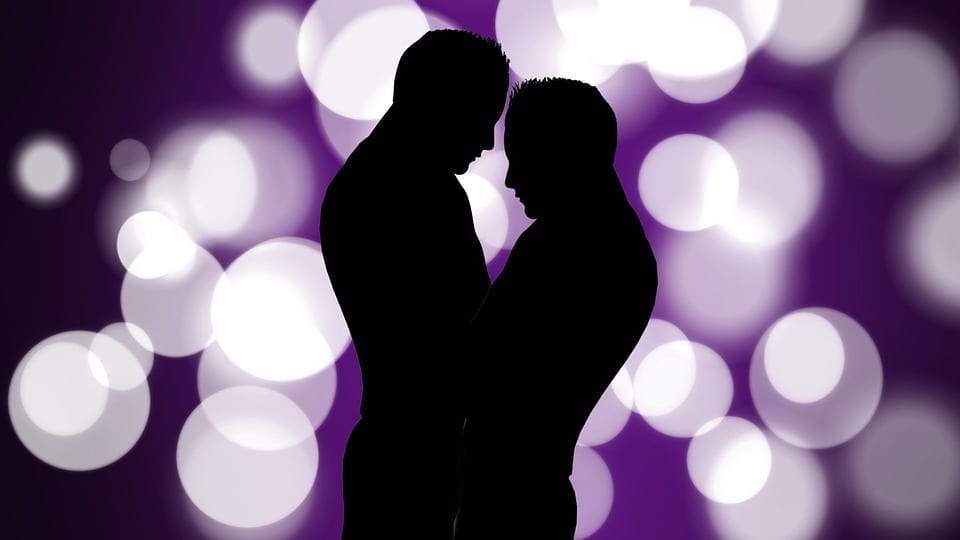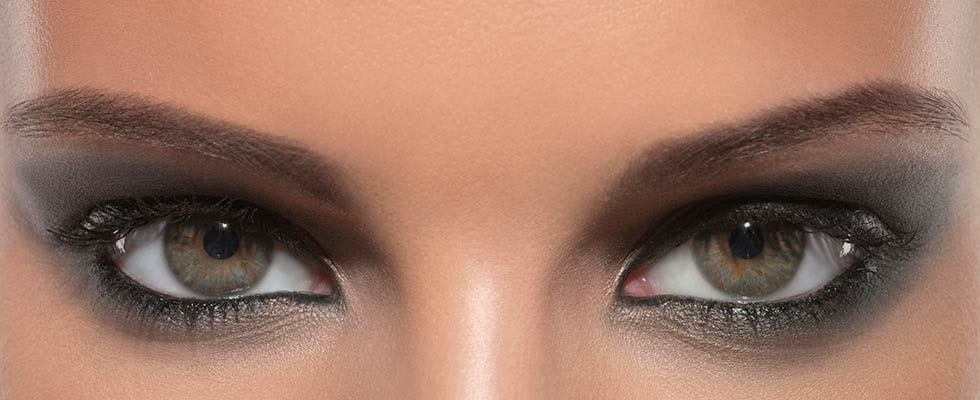It’s not everyday that we stumble upon some expert advice on dating (and no, your neighbor Marge doesn’t count). With demanding jobs and hectic lives, most of us could use a little help. A Clinical psychologist draws on his years of experience counseling gay men to offer insightful hints to making (and keeping) a love connection.
Chemistry and Meeting
- a. Do you come here often?
- b. I almost didn’t have the courage to talk to you
- c. I like your shirt
- d. You’re the sexiest person in here
You may dislike all of these openers. Obviously you have to pick an approach that is comfortable for you. The consensus from ten years of dating workshops is that some form of compliment is the best approach. Most people who have trouble approaching others feel like they have to come out with a wonderful, articulate, funny opening. While “come here often?” is bland, it’s better than standing in a corner feeling tense and disappointed in yourself. It’s good to be genuine – that makes things lively – but you shouldn’t make your approach sound like group therapy. If you make a good connection, you can reveal later how hard it was to make the introduction. If you are looking for sex, a sexual compliment may clarify things quickly, but it won’t create the best atmosphere for getting to know someone. I prefer the simplest approach of all. With as friendly a smile as my nervous face can muster, I say: “Hi, my name is Will.”
On a scale of 1 to 10, (with 10 being the highest), what is the ideal degree of physical chemistry you should have with someone you are dating?
- a. six to eight is a good, healthy chemistry
- b. the higher the better
- c. five to six, so you can feel safe
- d. at least a nine
When you’re attracted to someone, the chemistry is usually based on both looks and personality. The higher the chemistry, the more likely it is that your insecurities and early childhood vulnerabilities will be triggered. A person who triggers these feelings is likely to have some of the negative characteristics of parents or others who caused you pain in childhood. For instance, if you have a sense of defectiveness (not feeling good enough), you may have high chemistry with someone who is critical of you, just like your father or mother was. In general, I recommend that people choose partners with a six to eight chemistry to provide an adequate mix of excitement and vulnerability. If you choose someone for whom you feel too low a chemistry, you may become bored. The amount of chemistry that is reciprocated is also important. If s/he is a 10 for you and you are a 5 for him or her, you will probably feel unappreciated and unhappy. If you both are 10’s for each other and neither of you feels defective, it might be an interesting ride, but fasten your seat belts!
What age difference works best for gay couples?
- a. Research has shown that gay couples within five years of each other have the best chance
- b. Gay couples with a nine year or more age difference do the best
- c. Couples about the same age fare better
- d. There is no correlation between age difference and a successful relationship
Among the clients who see me for therapy, two of the most successful relationships are couples with big age differences. But most couples I have worked with have been much closer in age. Some psychologists suggest that a nine-year difference tends to minimize power struggles and competitiveness, but I don’t know of research that suggests any particular age difference works best. For many years I had the idea that my ideal lover would be about the same age as me. Yet, I’ve had partners ten years older, ten years younger and the same age, and the match between our personalities and values always turned out to be more important than the age differences. I do have a slight prejudice, which I can overcome when necessary, that men in their mid-twenties may not be settled enough to make good matches with older guys in their forties and fifties.
I have met past boyfriends/girlfriends (dated six months or more):
- a. Through friends
- b. In a bar
- c. On the street
- d. Through a dating service
- e. In a gay organization
In my therapy practice I’ve seen men who’ve met their partners through all of these avenues. Meeting someone through friends has the advantage of some pre-screening (unless the friend’s philosophy is “they are both gay, so they’re perfect for each other”). A possible problem is the feeling that you are dating in a fishbowl with progress reports requested on all sides. On the other hand, the pressure can be off when you meet someone through an organization. You can get to know the other guy naturally through sharing activities you both enjoy without having to make quick decisions about asking him out. Men you meet in the street or in a bar may be more focused on sex than dating, but there are always exceptions. The biggest initial objection to dating services is the idea that they are “for losers and the last resort for the desperate,” but the truth is that the men who join up may be more seriously interested in and ready for a relationship. I have several friends who are very happily committed to partners they met through a dating service.
The First Date
What is the topic you should most avoid discussing on a first date?
- a. Your HIV status
- b. How you are feeling on the date
- c. The ways a recent boyfriend hurt you
- d. What you like to do in bed
In ten years of leading dating workshops, I have asked this question many times. Most guys feel that the biggest turn off is discussing the ways a former boyfriend hurt you. It puts the focus on the past and on problems rather than on the pleasure of getting to know each other in the present.Whenever I heard a dramatic and sad tale on a first date, my psychologist alarm signals would go off full blast — indicating that my date wasn’t available yet or he was so wounded that he would take far more than he could give. Some men like to have the HIV discussion on the first date with someone they like. If they have a strong preference to date a man of similar HIV status, they can be sure that they are compatible. While talking about what you like to do in bed is a way to get to know someone, it’s a bit premature for a first date.
When you’re excited about someone you just had a first date with and there seems to be a mutual interest, how long should you wait before giving him/her another call?
- a. Leave him/her a message the next day to let him/her know you enjoyed the date
- b. If you are not sure, wait for him/her to call you
- c. Wait at least two or three days
- d. Let a week pass
Sometimes there is no second date because both men/women are waiting for the other to show interest. It is good practice to put yourself on the line by calling. You can learn to move on quickly if the interest is not as mutual as you had hoped. If you have a pattern of scaring men off, you should probably set some firm guidelines for yourself. No matter how you feel, wait at least two or three days before calling again. However, if he/she treated you to dinner, it would make sense to leave a message thanking him/her for the meal, saying you had a good (not life-changing) time, and suggesting you speak later in the week. If being too enthusiastic too quickly is not an issue for you, you can probably trust your own intuition.
When dating someone, how should you handle dealing with HIV status?
- a. Be clear about it on the first date
- b. Make sure to discuss it before having sex
- c. Have safer sex and talk about it only when things look like they might get more permanent
- d. It doesn’t really matter whether you discuss it as long as you are having safer sex
The more anxious you are about HIV issues, the better it will be to talk about the topic early on. You do not necessarily need to discuss HIV on the first date, before you are sure that there is mutual interest. I’ve noticed that there are big differences in people’s reactions to HIV. Some people with HIV like to be clear about the issue right away. They don’t want to start feeling close and risk having the other man pull away suddenly when he learns their status. They may prefer to date someone who is also HIV positive because they might have more in common. People who don’t have HIV, who are very frightened by HIV, or fear losing someone, may feel a need to discuss this issue at the start.If you are dating someone with whom you want to develop intimacy, talking about HIV before sex can be part of building closeness. If you have sex before discussing HIV, a good question to ask yourself is whether you would have done anything differently during sex if you knew your partner’s HIV status. If so, that might be a sign that you should talk about it first. In any case, keep having safer sex.
At the end of a first date, when you’ve decided you don’t want to see the person again, what is the appropriate thing to say?
- a. Thanks for getting together with me
- b. Let’s talk
- c. The romantic chemistry didn’t quite click
- d. Good-night
At the end of a first date there is what I call “the moment of truth or not” where one or both parties give some signal as to whether there will be a second date. When I was single, I heard “let’s talk” a couple times and was frustrated when I didn’t hear from the guy again. “Let’s talk” works as a quick way of ending the evening, but it’s ultimately unkind if you have no intention of following through. “Good night” sounds a bit dismissive and abrupt to me although it does get the point across. Something simple and polite, like “nice to meet you” probably works best. It is more effective to show interest by saying something like “I would enjoy seeing you again. Give me a call if you would like to do that” rather than asking how your date felt. When the other person does put you on the spot by asking, you can say something like “the romantic chemistry didn’t quite click.” Most people don’t want a big explanation about why you don’t want to see them again. If you’d like to consider a friendship with the person you can let them know that you felt more of a “friendly chemistry” than a romantic one.
Gettting Closer
You have issues of abandonment (fear losing someone). A bad choice is to date someone who:
- a. lives in a different state
- b. also has issues of abandonment
- c. tends to be critical
- d. is just coming out of another relationship
Anyone who is not fully available will trigger your feelings of abandonment. A man who lives in a different state or one who is just coming out of a relationship will not likely provide you the consistency you need to feel secure, however attractive he may be otherwise. A partner who tends to be critical will also undermine your sense of stability. A man who has similar issues of abandonment will be better able to be sensitive to your needs. You do not need a partner with the same issues, but someone who likes you enough and is ready to stay connected.
When dating someone you think might have potential, how soon, according to the experts, should you have sex?
- a. On the first date, if it feels right
- b. Wait at least until the third date
- c. A minimum of six dates
- d. They don’t know
Experts don’t always agree on these matters of judgment. I certainly know couples who jumped into bed on the first date and are still together. More often I hear stories from men who sleep with someone on the first or second date and are disappointed not to hear from the date again. The “instant intimacy” of quick sex can lead to a desire to avoid what felt, only in retrospect, like “too much too soon.” When you like each other and are both powerfully attracted, it can be difficult, but it is generally better to have three to six dates before sex. By then you can feel some genuine connection when you do have sex. If the sex fizzles on the first try, you may even be able to laugh about it.
How long should a couple wait before moving in together?
- a. At least a year
- b. Whenever they feel comfortable
- c. After they have spent at least a week together full-time
- d. After six months of serious dating
You know the old joke “What do lesbians bring on their second date? A U-haul it.” Gay men are more likely to take their time about moving in. I have seen happy gay couples who still have separate apartments after ten years. Some people move in too quickly for reasons which are not solid: needing a new place after a lease runs out, financial pressures, fear of losing their partner or intense infatuation. The best reason to move in is that you know your partner very well after experiencing him/her in a wide range of situations. A gradual increase in the time spent together (full weekends, frequent weeknights, weeks away) allows you to move past your fantasy of your partner to the mixed-bag reality of who he/she is. As a rule of thumb, a minimum time of six months to a year allows for that, but you may not have a deep knowledge of your partner for two years or more.
What is a main difference between men and women?
- a. Men are not programmed to be monogamous
- b. Women find it easier to handle their partners having an affair
- c. Men are more easily overwhelmed by stress during conflict
- d. Men are more aroused than women by sight
I know and work with many gay male couples who are monogamous, although I am surprised by how many single gay men do not know a monogamous couple they can look to as a role model. There is no evidence that women find it easier to tolerate an affair. Men are more easily aroused by sight than women and perhaps are more likely to understand the urge for their partner to have sex with others. One of the fascinating findings of recent research is that men are more easily overwhelmed by stress than women, during conflict. Physiological measures show that men’s autonomic nervous systems generate higher distress reactions in conflict and take longer than women’s to calm down afterward. This is probably why many straight men’s least favorite line is “let’s talk about our relationship.” In a gay male relationship, there is the potential for both men to be so overwhelmed by stress during disagreements that they avoid discussing problems (we call that “stonewalling”). My theory is that a gay couple often contain one man who is more like a woman in his preference for “talking” and his ability to handle conflict while the partner is more traditionally masculine in his higher degree of arousal and avoidance. (The same may be true of lesbian couples.) It would be interesting to do a study comparing lesbian and gay male couples and how they deal with conflict.
Making it Work
What is the single best predictor of whether or not a couple will stay together
- a. Shared values
- b. How frequently they fight
- c. The ratio of appreciation to criticism
- d. Listening skills
Dr. John Gottman and his research group in Seattle, Washington have studied more than seven hundred couples over the past 25 years. Couples stay in their “love labs” where they are videotaped for days at a time. Dr. Gottman’s group bases their research findings on analysis of the couple’s actual interactions. The have discovered what behaviors make the difference between couples who stay together and those who part ways. One of the surprises was that the amount of fighting did not make a difference in predicting who stayed together. Shared values and good listening skills obviously contribute to good relationships, but the single best predictor was the ratio of appreciations to criticisms that a couple exchanges. A couple that expresses five times more appreciations (“you look sexy today”, “you are so much fun to be with”) than criticisms (“you are so cold to me”) is most likely to stay together. Creating a positive emotional bank account seems to be the best underlying basis for weathering fights and stresses.
Research has shown that couples are happiest when they:
- a. Are rigorous about telling each other the truth
- b. Avoid saying every angry thought when talking about touchy subjects
- c. Don’t end a fight until it is resolved
- d. Never fight at all
Research has shown that happy, successful couples have many different styles. Some fight frequently while others bury most of their differences under the rug. Mental health professionals used to think that couples who fought frequently were the ones most likely to break up, but this has not proven to be true. For couples who fight, sometimes it’s helpful to take time out and let things calm down. Some fights take days, weeks, or even years to resolve. Truth telling is not always associated with happiness. Couples who are able to avoid saying every angry thought when talking about difficult subjects have been shown to be the happiest. By holding back some of their most incendiary comments, they contribute to a generally positive climate in the relationship.
What is one of the main signs that your relationship is deteriorating?
- a. Partners express contempt and defensiveness
- b. The couple fights frequently
- c. One partner feels easily overwhelmed when they get into a serious discussion
- d. Both begin telling white lies
Gay couples may fight frequently, they may tell little white lies, and they may feel overwhelmed at times during discussions, but the key sign of a deteriorating relationship is the expression of contempt and defensiveness. Gottman has identified what he calls the “Four Horsemen Of The Apocalypse,” the four aspects of a sure-fire pattern for ruining a relationship. When a couple expresses frequent Criticism, Contempt, Defensiveness (blaming rather than expressing your role in the problem), and Stonewalling (refusing to talk), they are on a guaranteed road to eventual break-up. These “Four Horsemen” ruin the positive atmosphere, which is essential for allowing a relationship to survive the stresses of being together in a world that is not supportive of gay relationships.
Successful, happy couples are good at:
- a. Planning special vacation time together
- b. Balancing their work and home lives
- c. Exiting an argument before it gets out of hand
- d. Communicating their needs to each other
I have worked in therapy with many gay couples where both men have very demanding careers. One of the dangers for a “power couple” is that they focus so much on career advancement that they begin to lead parallel lives. They don’t plan enough special dates and vacation times with each other. The busier a couple is, the more important it is for each man to learn simple and effective ways to express their needs and fears to each other. Although balancing work and home, communicating needs, and planning special times are all important, research has shown that the ability to exit an argument before it gets out of hand distinguishes happy, successful couples from couples who are just getting by. In my practice, I offer therapy for couples in crisis, but one of the most important services I offer is enrichment therapy, which teaches the skills couples need to keep their relationships strong. Many couples break up after becoming alienated from each other over time. In order to keep a relationship healthy, you need to know how to exit an argument quickly, how to express feelings simply, how to deepen friendship with each other, and how to increase playfulness between you.






Be the first to comment on "Two Of Hearts: Expert Dating Advice"